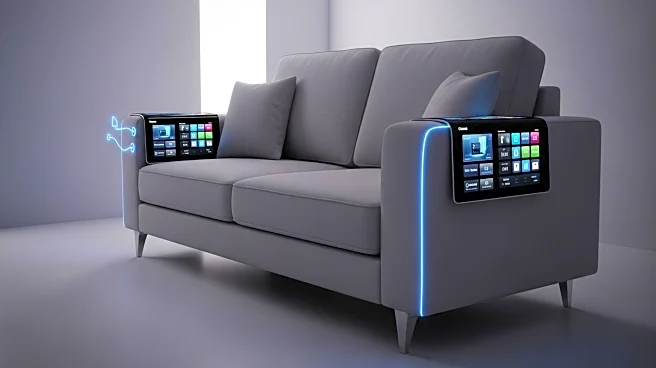What's Happening?
DreamSofa, a U.S.-based custom sofa brand, is revolutionizing the furniture industry by integrating technology into its design and manufacturing processes. The company employs 3D configurators and rapid local manufacturing to streamline the custom furniture experience. This approach allows consumers to design sofas with precision, using interactive tools for real-time visualization. DreamSofa's direct-to-consumer model reduces costs and delivery times, offering a competitive edge over traditional retailers. The brand also emphasizes sustainability, incorporating eco-friendly materials and circular design principles into its business model.
Why It's Important?
DreamSofa's innovative approach represents a significant shift in the furniture industry, highlighting the growing importance of technology in consumer products. By offering faster delivery and personalized design options, DreamSofa meets the demands of tech-savvy consumers seeking convenience and customization. The company's focus on sustainability aligns with broader environmental trends, appealing to consumers who prioritize eco-friendly practices. This model not only enhances customer satisfaction but also sets a precedent for other industries to integrate technology and sustainability into their operations.
What's Next?
DreamSofa's continued investment in technology and sustainability may influence other furniture brands to adopt similar practices. As consumer expectations evolve, companies across various sectors might explore tech-driven customization and eco-friendly initiatives to remain competitive. DreamSofa's success could lead to increased collaboration between tech and traditional industries, fostering innovation and efficiency. The brand's commitment to service innovation, through personalized customer support, may also inspire changes in customer service models industry-wide.
Beyond the Headlines
DreamSofa's approach raises questions about the future of retail and manufacturing, particularly in terms of balancing technology with human-centric service. The integration of digital tools with personal support reflects a broader trend towards hybrid service models. Additionally, the emphasis on circular design principles may encourage other industries to consider sustainability as a core business strategy, potentially leading to long-term shifts in production and consumption patterns.









